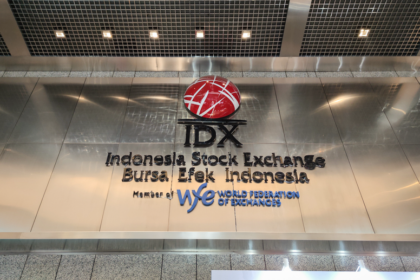Crackdown on TaniHub and eFishery puts Indonesia’s startup boom under the microscope
Indonesias startup scene, long held up as a growth engine for Southeast Asias digital economy, is facing its hardest test. Jakarta prosecutors have advanced a sweeping probe into alleged graft and money laundering tied to agriculture marketplace TaniHub, a case centered on about 25 million dollars of investment funds. At the same time, aquaculture unicorn eFishery has unraveled after investigators reported inflated revenue and hidden losses. The two cases, different in mechanics yet similar in message, have chilled funding, dented trust, and forced a reassessment of how capital is deployed and monitored in one of the regions largest startup markets.
- Crackdown on TaniHub and eFishery puts Indonesia’s startup boom under the microscope
- What prosecutors allege in the TaniHub case
- eFisherys meltdown reshapes risk judgments in agrifood tech
- Why state backed venture capital faces extra scrutiny
- The business model problem behind many high growth startups
- A wider pattern of stress: from fintech lenders to logistics
- How investors are changing their playbooks
- What regulators and industry bodies are doing
- Protecting customers, suppliers, and workers
- What founders can do now to restore trust
- The Bottom Line
In early September, prosecutors named and detained executives linked to both TaniHub and the corporate venture capital units of state owned groups that backed it. The spotlight has spread beyond founders to professional investors who steered public money into private startups. eFishery, once a poster child for agritech, is now under external management and described as no longer commercially viable. International and local investors, already cautious since 2022, have tightened terms and slowed dealmaking.
The turbulence reaches beyond venture capital. Farmers and lenders who relied on startup platforms are dealing with unpaid bills, liquidations, and long legal processes. Regulators have responded with license revocations in fintech and closer supervision of risk-taking practices. What began as isolated allegations now looks like a sector wide reckoning, with consequences for growth, jobs, and Indonesias standing as a destination for technology investment.
What prosecutors allege in the TaniHub case
The TaniHub investigation focuses on equity investments made between 2019 and 2023 by MDI Ventures, the venture arm of Telkom Indonesia, and BRI Ventures, linked to Bank Rakyat Indonesia. Prosecutors say parts of those investments were unlawfully approved, then siphoned through TaniHub Group and related entities. Authorities have detained current and former executives at the venture units and at TaniHub, and they are examining whether investment funds were diverted for personal use and fictitious projects. The criminal inquiry includes corruption and money laundering counts. The case has become a test of how Indonesia polices conflicts of interest and internal controls when public money is channeled into startups.
Who has been detained, and why it matters
Detentions began in late July with TaniHubs former top leaders and an executive at MDI Ventures. By early September, the net widened to include senior figures tied to BRI Ventures and MDI Ventures who analyzed or approved investments. Among those named by authorities are leaders and ex leaders with influence over large pools of public capital dedicated to innovation. The shock is not only the alleged misconduct, but the signal that prosecutors are prepared to hold investors as well as operators accountable when funds are misused.
The money trail and TaniFunds collapse
TaniHub grew quickly after a 65.5 million dollar Series B round in 2021 led by MDI Ventures, with BRI Ventures participating. The group pivoted to business to business operations and leaned heavily on its lending affiliate, TaniFund, to extend credit through the supply chain. That proved risky. Non performing loans piled up. In early 2024, Indonesias Financial Services Authority, OJK, revoked TaniFunds license and ordered liquidation. Regulators have stated that the affiliate failed to meet prudential rules and did not repay lenders. Prosecutors are now tracing whether venture money filled holes at the lending unit, a practice that would violate investment mandates and mislead investors if it occurred. The possibility that equity capital meant for growth was used to cover credit losses is central to the public outcry.
eFisherys meltdown reshapes risk judgments in agrifood tech
eFishery, which sells a smart feeding system and data tools to fish and shrimp farmers, became a unicorn in 2023 after raising 200 million dollars. In late 2024, investigators reported that the company inflated revenue by almost 600 million dollars in the first nine months of the year and reported a profit when it actually posted a sizable loss. The board suspended the cofounders, and an external adviser later concluded that the business is not viable on its current footing. Investors now expect to recover only a fraction of what they put in. The fallout has rippled across food and climate tech, where unit economics often rely on thin margins and credit to buyers.
The eFishery case has real economy consequences. Farmers who bought devices or took financing through the platform reported disruptions and delayed payments. Dealmakers who championed climate and food security theses are confronting the limits of models that depend on rapid scaling of physical operations without robust internal controls. For Indonesia, the setback is symbolic, because eFishery had signaled that local hardware and software innovation could deliver both profit and inclusive growth.
Industry trackers show that Southeast Asias startup funding cooled in 2024, with deal value falling sharply across stages. Scandals accelerated that trend. Many funds now require more frequent financial updates, tougher covenants, and audit confirmations before releasing capital. New rounds take longer, and the bar for follow on checks has risen most in sectors exposed to inventory, receivables, and embedded lending.
Why state backed venture capital faces extra scrutiny
Indonesia relies heavily on corporate venture capital from state controlled groups to supply early and growth stage funding. MDI Ventures and BRI Ventures became central to the ecosystem over the past decade, backing dozens of companies and catalyzing rounds that drew foreign money. That model brings benefits and unique obligations. These investors handle public funds and are accountable to taxpayers. When things go wrong, investigations can extend beyond corporate governance into public accountability and anti graft enforcement.
The TaniHub probe has already changed behavior. New investments from core state linked venture funds have slowed. Public disclosures show a much thinner pace of deals since 2023, and only sporadic activity in 2024 and 2025. Executives under investigation face allegations that they approved unlawful disbursements or failed to stop improper transfers. Even if courts ultimately narrow or dismiss charges for some individuals, the signal is clear. Investment committees at public backed funds will demand tighter controls, and boards will ask for independent validation of financials before signing term sheets or wiring money.
The scrutiny does not imply that public capital should avoid startups. It means the processes must meet higher standards than those at typical private funds. Clear mandates, visible guardrails on use of proceeds, and independent compliance teams are essential when investments aim to advance national digital strategy as well as generate returns.
The business model problem behind many high growth startups
Several troubled Indonesian startups shared a pattern. They operated as technology platforms on the surface, but much of the growth came from extending credit to customers and suppliers. In business to business commerce, offering longer payment terms can win market share fast. That strategy also turns a tech company into a financing company, with all the risks that come with lending and collections. During a funding boom, equity rounds can mask the true cost of credit by subsidizing losses and rolling over unpaid invoices. When capital tightens, receivables age, cash burns faster, and the model cracks.
Observers have described how some business to business platforms acted more like trading houses or supply chain finance providers than pure software firms. The economics of those models hinge on underwriting and working capital discipline, not only on software features and user growth. If management teams use investor cash meant for product, logistics, or market expansion to cover delinquent loans, they create a mismatch that unravels when audits and regulators catch up.
The lesson is not that business to business platforms cannot work in Indonesia. It is that growth built on credit must be managed like a financial business. That means tight loan policies, independent risk review, daily liquidity monitoring, and clear disclosure to investors on how every rupiah of equity is used.
A wider pattern of stress: from fintech lenders to logistics
TaniHub and eFishery are not isolated cases. Investigations and regulatory actions have hit fintech lenders such as Investree and KoinWorks. Logistics player SiCepat faced allegations of fund diversion by a former executive. Even household names in the tech sector have been drawn into probes. Former Gojek chief and ex education minister Nadiem Makarim was detained this year as prosecutors examine a school laptop procurement project run during his time in government. That case concerns public procurement rules rather than venture funding, yet it feeds a public mood that expects accountability in technology related programs.
The concentration of issues in credit heavy businesses is not surprising. Indonesias uneven logistics, data gaps, and informal market practices can make underwriting hard. Many models depend on rapid scaling to reach viability, which tempts some teams to dress up numbers or delay recognizing losses. That does not excuse wrongdoing. It explains why enforcement and better governance are now front and center.
How investors are changing their playbooks
Funds that once prioritized speed now insist on proof. Common changes include milestone based capital calls, more reserved tranches, and clauses that let investors audit bank statements and tax filings mid round. Boards are requesting independent directors sooner, stronger CFOs, and internal audit functions as companies approach Series B. Some corporate venture units are separating commercial partnerships from investment decisions to avoid conflicts inside large groups.
For cross border investors, Indonesia remains attractive because of its scale and digital adoption. The playbook is shifting from growth at all costs toward sustainable unit economics, improved cash conversion, and verified data. The pendulum is likely to settle in a place where strong teams still get funded, but they must show better controls and clearer paths to profitability.
What regulators and industry bodies are doing
OJK has moved against firms that breach prudential rules, revoking licenses and ordering liquidations when needed. The TaniFund action in 2024 sent a message to the lending segment that mismanaging credit risk now brings swift penalties. In venture capital, Indonesias industry association has expressed concern and pledged support for law enforcement. It has encouraged members to strengthen accountability, transparency, and education for founders and investors. The combination of enforcement and industry standards can raise the quality of disclosures, board oversight, and risk management.
Regulators also face a balance. They must protect consumers and investors without choking off innovation. Clearer rules on how startups can blend lending with commerce or logistics, faster resolution for distressed platforms, and public reporting of enforcement outcomes can help. Many honest founders suffered in 2024 and 2025 as capital dried up for reasons beyond their control. A predictable rulebook and consistent enforcement would reward the companies that do things right.
Protecting customers, suppliers, and workers
When a platform collapses, the damage extends beyond investors. Farmers who supplied goods, lenders who funded working capital, and employees who accepted stock options often face losses. Stronger escrow arrangements for lender funds, ring fencing consumer balances, and basic supply chain protections can limit harm. Transparency on payment terms and dispute resolution gives small businesses the confidence to keep using digital platforms.
Consumer and small business protection is also a competitive advantage. Platforms that publish on time payment rates, claims data, and audit summaries can win trust even in a skeptical market. Those that keep finance activities separate from core operations, maintain robust capital buffers, and disclose related party dealings early will find it easier to raise money and sign partners.
What founders can do now to restore trust
Capital is still available for credible teams solving real problems. Founders who demonstrate discipline can stand out in a crowded market. A practical checklist helps.
- Hire experienced finance leaders early and empower internal audit.
- Publish quarterly investor updates that reconcile cash, revenue, and receivables.
- Use proceeds strictly for purposes approved by the board, and document every transfer.
- Separate lending activities from commerce or software operations, with clear risk policies.
- Adopt reputable external auditors and rotate partners regularly.
- Set payment terms that match cash conversion realities, not fundraising hopes.
- Install independent directors before Series B and create a strong audit committee.
- Test controls through surprise checks of inventory, customer balances, and related parties.
The Bottom Line
- Prosecutors are pursuing a 25 million dollar corruption and money laundering case tied to TaniHubs funding between 2019 and 2023.
- Detentions include current and former executives from venture units linked to state owned groups and TaniHubs former leaders.
- OJK revoked TaniFunds license in 2024, and prosecutors are probing whether equity money plugged lending losses.
- eFishery, once valued at more than 1 billion dollars, is under investigation for inflated revenue and hidden losses and is now deemed not commercially viable.
- Funding across Southeast Asia fell in 2024, and investors are imposing tougher controls, slower deal pacing, and frequent audits.
- State backed venture capital remains vital, yet faces higher expectations on governance and public accountability.
- Models that drive growth by extending credit carry extra risk and require bank grade controls.
- Regulators and industry groups are pushing for stronger governance to protect consumers, suppliers, and investors.












